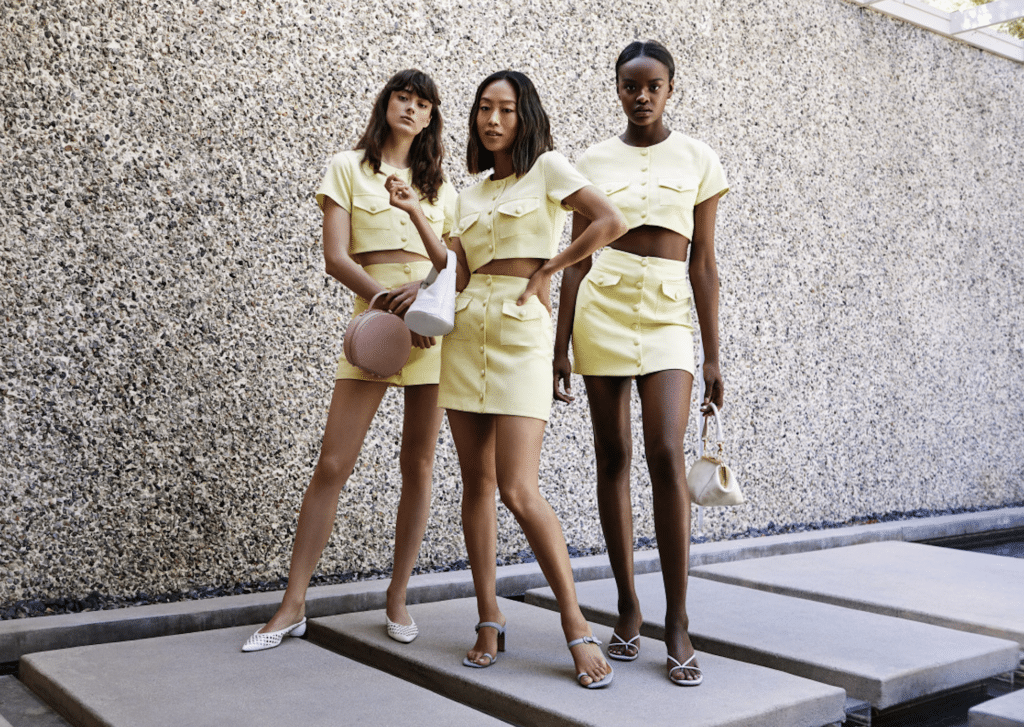The Supreme Court will not been hearing a kase involving the Kardashians. Among the lengthy list of cases that the nation’s highest court has denied to take on is Kroma Makeup EU, LLC v. Kardashian, Kimberly, et al., the trademark infringement lawsuit that beauty company Kroma Makeup EU filed against Kim, Kourtney, and Khloe Kardashian in September 2014, accusing the famous sisters (in their personal capacities) of willfully hijacking the name of their now-defunct beauty brand, thereby, causing the already-established Kroma to lose sales as a result of “consumer confusion with the Kardashians’ Khroma products” and ultimately shutter, as well.
Following a multi-year back-and-forth before a federal court in Florida and a pair of losses from the U.S. Court of Appeals for the Eleventh Circuit, Kroma EU – which was granted a license in October 2012 to import, sell, and distribute “Kroma”-branded products in Europe from Kroma trademark holder By Lee Tillett, Inc. –asked the Supreme Court to take on the case in a petition filed on September 3.
Unsatisfied with the Eleventh Circuit’s June refusal to rehear the case after its 3-judge panel decided that Kroma EU’s “licensing agreement [with] Tillett … did not afford [it], as the licensee, sufficient ‘rights in the name’ to sue [the Kardashians for trademark infringement] under the Lanham Act,” the British beauty licensee asked the Supreme Court to review the case and ideally, resolve “a three-way circuit split” centering on who has the ability to pursue trademark infringement claims under section 43(a) of the federal trademark statute.
According to Kroma EU’s petition for certiorari, over a year after it was granted the exclusive right to market and sell Kroma-branded beauty products in Europe, the reality television sisters debuted a similarly-named collection of lip glosses, eye shadow palettes, and other beauty products in the U.S. and internationally, which prompted a since-settled legal fight between the Kardashians and their Khroma partner co. Boldface Licensing, and By Lee Tillett, Inc. over the use of the Khroma name in the U.S. market.
Thereafter, Kroma EU filed a suit of its own (in the U.S.) against the sisters for trademark infringement in connection with their use of the Khroma name in Europe, only to be told by the lower court that it lacked standing to file suit because in order to do so, “a licensee must have contractual – in addition to statutory – standing,” and Kroma EU lacked contractual standing because its license agreement with By Lee Tillett “failed to provide Kroma EU with sufficient ‘rights in the [Kroma] name’ to pursue trademark infringement claims against the Kardashians.”
The Eleventh Circuit Court of Appeals similarly sided with the Kardashians, and held that Kroma EU lacked the necessary standing to file suit. And now, the Supreme Court has also sided with the reality stars by refusing to review on the case for error, and thereby, letting the Eleventh Circuit’s ruling – one that let the Kardashian off the hook – stand.
Not an uncommon outcome, out of the 7,000 to 8,000 petitions filed each term, the court only takes on about 80 cases, according to the Supreme Court blog.
In order to land on the court’s list of cases, a minimum of four of the nine justices is required to vote in favor of taking on the case. So far this year, the court has agreed to review a handful of politically-charged issues, taking on cases centering on Lousiana’s state abortion law, the Trump Administration’s ending of the Deferred Action for Childhood Arrivals program, the meaning of “sex” within Title VII of the Civil Rights Act of 1964, and the constitutionality of a New York City gun-transportation restriction law.














